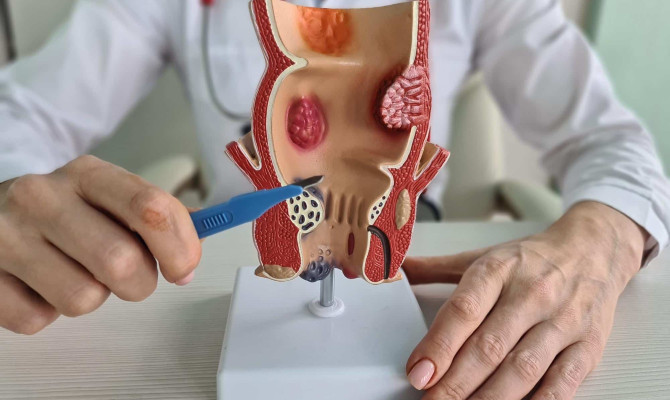Allergies: Types, Causes, and Management

- Allergies
- 14 Aug 2023
Introduction
What is Allergy ?
Allergies are a common and often misunderstood health condition that affects millions of people worldwide. An allergy is a hypersensitivity of, or over-reaction by the immune to, a foreign substance, termed as an allergen and often non-infectious, that comes in contact with the body. The hypersensitivity or reaction against the allergens can result in a range of symptoms, including itching, swelling, wheezing, sneezing, and in severe cases, anaphylactic reaction. The trigger to this can be initiated by various elements, most commonly against pollen, animal products, foods, and medications.1what is allergy? | Researched based study from nih.gov
Certain age groups may be more susceptible to certain types of allergies, such as food allergies in young children and allergic rhinitis in adolescence and early childhood.

Types
Types of allergies
Allergies can manifest in different forms, depending on their causes and symptoms. Below are the most prevalent types of allergies:
- Food: This type of allergy develops when the immune system reacts to particular proteins found in certain foods. Common allergens include peanuts, tree nuts, eggs, milk, soy, wheat, fish, and shellfish.
- Seasonal allergies: Also referred to as hay fever or allergic rhinitis, are triggered by an immune reaction to grass and tree pollen. Runny nose, sneezing, and itchy eyes all common signs of seasonal allergies are usually very clear. Typical allergies include fish, shellfish, eggs, milk, soy, tree nuts, peanuts, and tree nut products.
- Drug allergies: This type of allergy occurs when the immune system responds negatively to certain medications. Common allergenic drugs include sulfa drugs, antibiotics such as penicillin, and aspirin.
- Insect sting allergies: This type of allergy occurs when the immune system reacts to insect venoms, such as those from wasps, bees, ants, and hornets.
- Latex allergies: This type of allergy occurs when the immune system reacts to latex, a material used in manufacturing rubber gloves, balloons, and other items. 2Types of allergies? | Researched based study from nih.gov
Causes
Causes of Allergies
The causes of allergies are multifactorial, including genetic, environmental factors, and immune system dysfunction.
Genetics
- Genetics may play a vital role in allergies. Research indicates that children whose parents have allergies are more likely to develop them.
Immunity
- The fundamental role of the immune system is to recognise and protect against hazardous substances, and it achieves this by creating antibodies to neutralise those molecules.
- In people with allergies, the immune system mistakenly identifies non-harmful substances as threats and triggers an allergic response, which leads to allergic symptoms.
- The allergic reaction comprises two phases, the early phase, which happens within minutes of exposure, and the late phase, which occurs a few hours later.
- In individuals with allergies, the immune system erroneously identifies harmless substances as threats and produces an allergic response, causing hives, itching, swelling, and more severe symptoms like anaphylaxis.
Environmental factors
- Exposure to allergens is the most well-known environmental factor that causes allergies.
- Pollen, dust, mold, pet dander, and certain foods, are some of the allergens that can trigger an allergic reaction.
- Upon exposure to an allergen, the immune system produces antibodies, resulting in an allergic reaction.
Air pollution
- Pollution is another factor that can cause allergies.
- Polluted air can irritate the nasal passages and lungs, leading to inflammation and increased sensitivity to allergens.
- According to studies, exposure to air pollution raises the likelihood of allergies, especially in children. 4Causes| Researched based study from acaai.org
Climate change
- Climate change is another factor that can affect allergy development. An increase in temperature and changes in precipitation patterns can impact the severity and timing of pollen seasons, leading to more prolonged and severe allergy seasons. As well as making allergies more common, this can make individuals who already have them worse.4Causes| Researched based study from acaai.org
Chemicals
- Exposure to specific chemicals can contribute to allergy development.
- Chemicals in cleaning solutions and household products can irritate the skin and respiratory system, leading to allergic reactions.
- Pesticides and other agricultural chemicals have also been linked to an increased risk of allergies.
Lifestyle factors
- Such as diet and exercise can impact allergy development. A nutritious diet that includes fruits and vegetables can lower the risk of allergies, according to studies. Due to its anti-inflammatory qualities, exercise has also been demonstrated to shield against allergies.
Allergens
Common Allergens

Common allergens that can cause an allergic reaction in susceptible individuals include
- Pollen- Plants produce pollen, a fine powder, to help with pollination. When inhaling pollen, those who are allergic to pollen may experience an allergic reaction. Over 8% of people in the US suffer from pollen allergies, often known as hay fever or allergic rhinitis. 4Allergens| Researched based study from acaai.org
- Dust mites – Microscopic insects that feed on the skin cells of humans and dwell in dust. Their bodily fluids and droppings can cause allergic reactions in those prone to them. A prevalent cause of asthma that affects 10% of people worldwide is a dust mite allergy.4Allergens| Researched based study from acaai.org
- Pet dander- It is the term used to describe the microscopic skin, fur, or feather particles that animals expel. Pet dander can cause allergic reactions in people with a pet allergy when inhaled.
- Mold – A form of fungus that thrives in moist environments is mold. Mold spores can cause allergic reactions in those who are sensitive when inhaled.4Allergens| Researched based study from acaai.org
- Insect stings – Those who are allergic to insect stings, such as those from bees, wasps, and hornets, may experience an allergic reaction. Anaphylaxis, a potentially fatal allergic reaction, can happen in extreme circumstances.4Allergens| Researched based study from acaai.org
- Food – Certain foods, including peanuts, tree nuts, seafood, milk, and eggs, can cause allergic reactions in some people.
- Medicines – Some people may develop an adverse reaction to some medication, including penicillin.
Symptoms
Symptoms of allergies
Nasal symptoms
- Hay fever, commonly known as allergic rhinitis, is a common allergy that causes various nasal symptoms.
- Common symptoms include sneezing, congestion, runny nose, and eye and nose itching.3Symptoms of allergies| Researched based study from nih.gov
Skin Symptoms
- Allergies can lead to skin conditions like eczema, hives, and swelling. Itchy, red spots on the skin called hives can form and typically go away in a few hours.
- Eczema is a chronic skin disease characterized by dry, itchy skin that can swell and produce red, scaly patches.3Symptoms of allergies| Researched based study from nih.gov
- Some allergic individuals may also have facial, lip, tongue, or throat swelling.
Respiratory Problems
- Respiratory symptoms such as coughing, wheezing, and shortness of breath can occur.
- Asthma is a chronic lung disease that allergens can bring, and these symptoms may indicate asthma.3Symptoms of allergies| Researched based study from nih.gov
Digestive problems
- Allergies may also lead to digestive symptoms like nausea, vomiting, and diarrhea.
- These signs and symptoms are frequently linked to food allergies, which develop when the body’s immune system responds to a particular food. 3Symptoms of allergies| Researched based study from nih.gov
Diagnosis
Diagnosis of allergies
Identifying particular allergens that cause an individual to experience allergic reactions is done through allergy testing. There are numerous ways to test for allergies, including patch tests, blood tests, and skin tests.
Skin test
- The most popular allergy tests are skin tests, which entail pricking or scratching the skin with a tiny quantity of the allergen to watch for a reaction.
- It can be done using an aqueous solution of allergens, including frequently inhaled dust mites, pollen grains, dog hair, and food allergies.
Patch test
- A patch test is frequently employed to diagnose contact dermatitis. It can be carried out using the known allergens or the suspected compounds.
- The patient is sensitive to the allergen if there are 48–72 hours later irritation, itching, redness, or swelling at the application site.
Blood(IgE) test
- Your doctor will send a sample of your blood for an IgE test to a lab. The lab increases the blood sample’s allergen content before calculating its IgE antibody concentration. False positive results from blood testing can happen more frequently.
Treatment
Treatment of allergies
Medication
- Antihistamines are one of the most popular pharmaceuticals used to treat allergies, They work by obstructing the actions of histamine, a substance that the body releases in response to an allergen. This may lessen allergy symptoms like itchiness, sneezing, and runny nose.
- First-generation and second-generation antihistamines are just two of the wide varieties of antihistamines that are offered. Benadryl and other first-generation antihistamines have other adverse effects, including sleepiness.
- You’re less likely to become drowsy when taking second-generation antihistamines like Claritin and Allegra. Another type of drug used to treat allergies is nasal corticosteroids. They treat symptoms, including nasal congestion and runny nose, by lowering nasal inflammation. 5Treatment of allergies | Researched based study from acaai.org
Immunotherapy
- In order to desensitise the immune system to the allergen, this allergy therapy strategy involves gradually exposing a patient to little quantities of the allergen.
- Immunotherapy can be given intravenously or intramuscularly to treat allergies. This kind of treatment may be successful for those with allergic rhinitis, allergic asthma, or venom allergies.
- A small amount of an allergen is injected into a person during allergy shots, sometimes referred to as subcutaneous immunotherapy. The dose is progressively raised to achieve a maintenance level that can offer long-term relief from allergy symptoms.5Lifestyle modifications for allergy | Researched based study from mayoclinic.org
- Another method of immunotherapy is sublingual immunotherapy, which involves putting a pill beneath the tongue containing a tiny amount of an allergen. Once the tablet dissolves, the allergen enters the bloodstream. Over time, the allergen dose is gradually increased.
- A healthcare professional should only deliver immunotherapy in a medical setting as it is possible, though unlikely, for it to result in a severe allergic reaction.
Emergency treatment
- Urgent medical assistance is required for severe reactions. You can take subsequent emergency medical measures.
- Call the hospital or get emergency medical help , If a person anticipates severe symptoms such as trouble breathing, swelling of the face or throat, a rapid heartbeat, or loss of consciousness, get emergency medical help immediately.
- Epinephrine, The first line of defense in treating severe responses is epinephrine. It should be injected into the outer thigh muscle as soon as possible to help reverse the symptoms of anaphylaxis.5Lifestyle modifications for allergy | Researched based study from mayoclinic.org
- Antihistamines, these medications are available as pills and liquids.
- Inhalers for persons with asthma or other respiratory problems, inhalers can help ease symptoms, including wheezing and shortness of breath.
- Lay down and raise your legs. If you’re dizzy or feeling lightheaded, it’s crucial to lie down and raise your legs to improve blood flow to your heart and brain.
Lifestyle
Lifestyle modifications to ease allergies
Many people may struggle daily with allergies. Here are some suggestions for managing allergies:
- Determine your triggers. Make a note of your symptoms and look for repeating patterns. A clinician can also perform an allergy test on you.
- Take steps to limit your exposure to triggers once you know them. This could entail staying away from particular foods, utilizing air filters, and sleeping in hypoallergenic bedding.
- Take medication; it’s vital to take it exactly as directed because it can help with symptoms.
- Communication ,If you have severe allergies, you must let your friends, family, and co-workers know about your illness. Knowing how painful your condition is, they can take precautions to prevent it. 5Lifestyle modifications for allergy | Researched based study from mayoclinic.org
Traveling with allergies
- Research the area you’ll be visiting, noting any probable allergy triggers before you go. For example, you might look into the pollen count, area medical facilities, and eateries that cater to allergy sufferers.
- Medication, Bring enough allergy medications for your trip.
- Food, while packing snacks for your trip, consider those that are allergy-friendly.
- Be up-to-date with weather and pollen forecasts while on your trip, and be ready to modify your plans if required. 6Travelling with allergies| Researched based study from mayoclinic.org
Takeaway
Key Takeaways
Managing allergies carefully is necessary to prevent triggers and lessen symptoms. You must recognize your triggers, reduce exposure, take your prescription as directed, carry your medications, etc. Doing particular actions can enhance one’s quality of life.
Any feedback on this article?
 This Articles content was accurate
This Articles content was accurate Very Informative Article
Very Informative Article I have a question or a comment
I have a question or a comment
 This article contains inaccurate content
This article contains inaccurate content This article was not helpful
This article was not helpful I have a question or a comment
I have a question or a comment
We appreciate your helpful feedback!
Checkout our social pages
References
-
National Institutes of Health
The development of allergic inflammation | Overview
-
National Institutes of Health
The prevalence and risk factors of allergic rhinitis in Africa: a systematic review and meta-analysis
-
National Institutes of Health
Air Pollution and Your Health | factors
-
American College of Allergy Asthma and Immunology
Pollen Allergy | Allergens | Causes
-
Mayo Clinic
Allergies: Treatment | Management
-
Mayo Clinic
Allergy medications. Know your options | Travelling






































